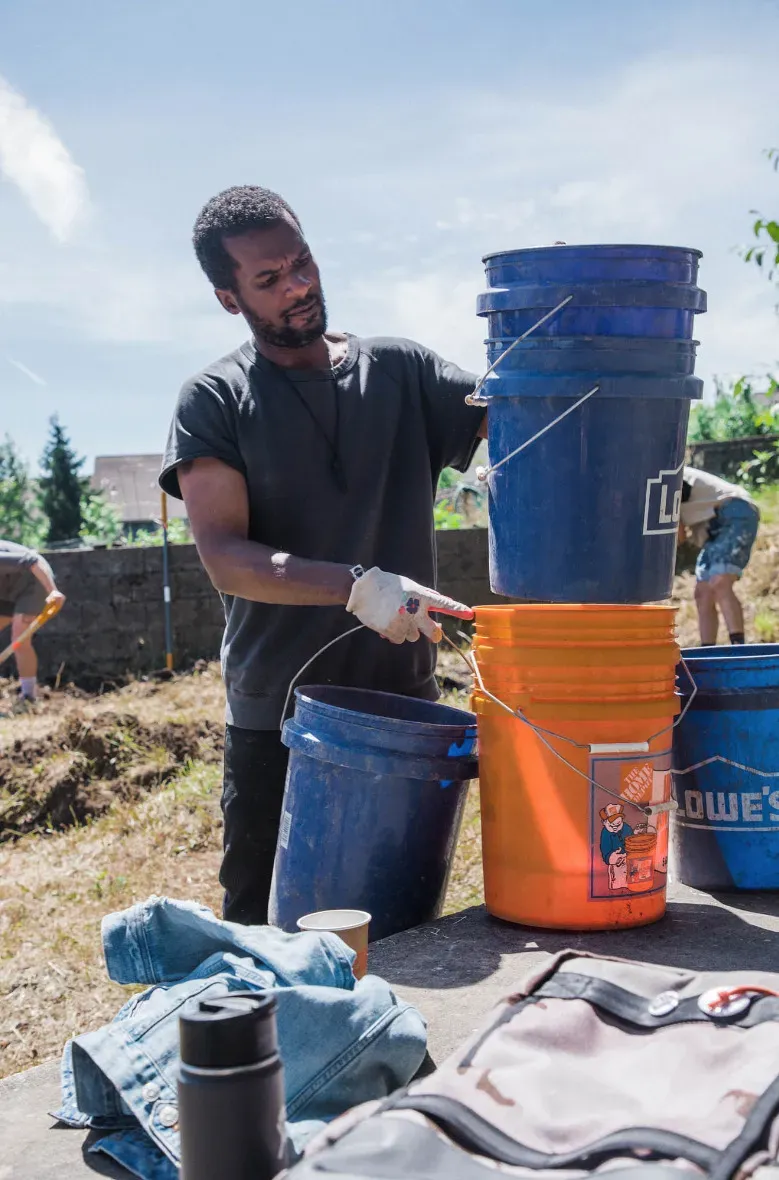Can a good meal change the world? This question lingers in my mind weeks after meeting John Wesley Sargent, independent artist and founder of Seattle BIPOC Organic, a food bank and grocery.
The power of "a good meal"
During the early pandemic, Sargent began to notice the effects of what he was eating on his mental health. He found himself more than physically satiated after indulging in the foods he wanted – he found himself inspired.
"When you're full and you're happy, that's when you can find the energy and the power to come up with solutions for your own life," said Sargent.
This realization spurred thoughts of those without secure access to healthy foods. "Feeding people should be a number one priority in communities. We can't actually change the world without feeding people," he said.
Hunger and food sovereignty in Seattle
World hunger has only been exacerbated during the pandemic. Surveys by the University of Washington and Washington State University King County have demonstrated an increase locally in food insecurity and reliance on aid since the beginning of the pandemic. Thirty-six percent of households in the county have experienced food insecurity in the last 18 months, and of these, most were people of color.
Such circumstances can be devastating to those who already live on the periphery. In the LGBTQ community, a wide array of health disparities already exist. Statistics regarding food insecurity and reliance on government aid programs have remained higher than those for the heterosexual population over recent decades, according to a National Health and Nutrition Examination Survey. (Before this, the data left uncollected would probably suggest the same.)
Sargent's idea of launching a BIPOC organic food-distribution project sprang into reality within weeks of his first pitch. He called the momentum "organic" in itself.
Planning led to outreach, and outreach led to hands on deck. By June 2020, Sargent had developed a network of friends, community members, and farmers to begin operating community-level food redistribution as the Seattle BIPOC Organic food bank.
Shortly thereafter, an open plot of land in the Rainier Vista p-patch was offered to the nonprofit, and dozens of volunteers and mentors joined Sargent in cultivating the land. The food bank would then begin producing its own organics, right in the heart of South Seattle.
"What we are doing here now is a qualitative approach to food sovereignty," said Sargent.
By utilizing mentorship, Sargent and his initial assembly of volunteers shared their knowledge to create a sustainable, organic, urban farm. The garden's current yield is bursting with leafy greens and the sprouts of root vegetables, due to this mixed-method approach of Afro and Indigenous techniques.
A new model for food banks
Food banks exist to fight one of the world's greatest long-standing problems: hunger. Nutritional needs, however, are often unaccounted for in this fight.
According to a January 2021 study from the University of Connecticut's Rudd Center for Food Policy and Obesity, health disparities are exacerbated by "unhealthy food environments." For example, obesity is most prevalent in food-insecure communities reliant on aid. Food banks are falling short in providing people in need with truly healthful foods.
According to Sargent, Seattle BIPOC Organic was never a traditional food bank. While most operate on a "hub-and-spoke" model, acting primarily as mass storage facilities for salvaged nonperishables, Sargent offers a fresh approach based in community.
According to his model, food banks should be able to offer inspiring and uplifting foods, by and for the community. Because of this, he is unafraid to continue asking for help in the development of Seattle BIPOC Organic, which has recently acquired a new 18-acre plot of farmland just beyond city limits.
With this new land, the organization aims to open a pay-what-you-can co-op, likely in South Seattle. To do this, they will need more volunteers and money. According to Sargent, a balance of energy in a Black and Indigenous space is crucial, but those of other backgrounds who wish to advance the mission of the food bank are welcome to invest their time or money in the land.
Those who are interested in volunteering or donating can contact John Wesley Sargent on Instagram https://www.instagram.com/36jewels/ or via email at [email protected].


